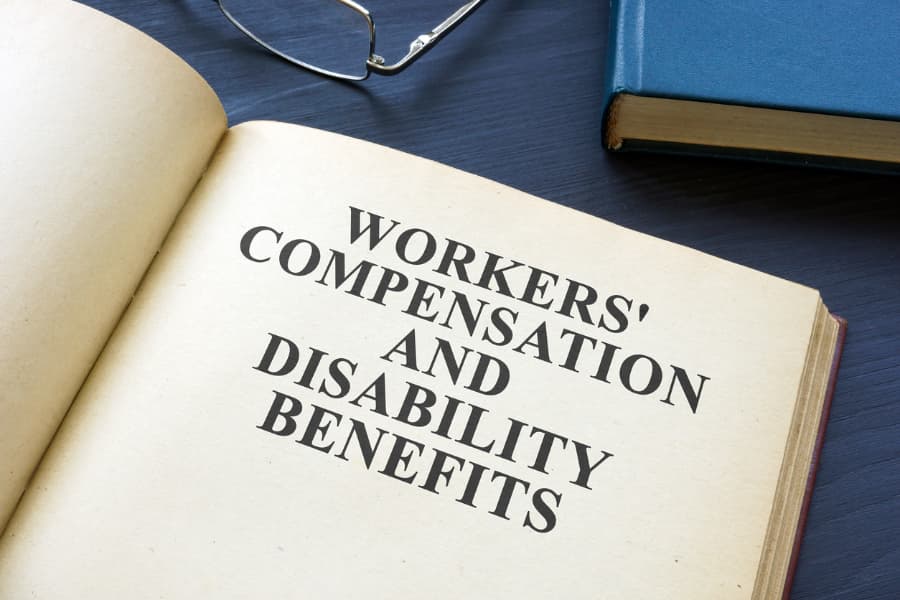Social Security Disability Insurance (SSDI) and New York workers’ compensation benefits can be collected at the same time. However, even if you qualify for both it’s important to understand that the benefits you receive from each program can be affected by the other. That’s why it’s vital to seek the counsel of an experienced SSDI lawyer with a record of success. At Nappa, Monterosso & Poznansky, LLP, our attorneys have extensive experience helping clients in the greater New York City area apply for and obtain Social Security Disability and workers’ compensation in New York.
SSDI vs. Workers’ Compensation in New York
Social Security Disability Insurance is a federal program that provides financial assistance to people who can’t work because of a qualifying disability. Eligibility is based on the severity of the disability and the amount of work credits they have earned through employment. The Social Security Administration (SSA) processes SSDI applications, determines eligibility, and manages the SSDI program.
Workers’ compensation is a state-based program that provides benefits to employees who suffer work-related injuries or illnesses. The NY Workers’ Compensation Board oversees the administration of workers’ compensation benefits in New York.
Should I Apply for SSDI If I Am Receiving Workers’ Compensation Benefits?
If you’re currently collecting workers’ compensation and it’s likely that you’ll be out of work for at least 12 months, it may make sense to apply for SSDI. Medical reports from your doctor and other documentation from the New York Workers’ Compensation Board should be provided to the SSA during the SSDI application process.
However, just because you’re eligible for workers’ compensation due to an occupational disease or disability, it doesn’t mean you’ll automatically qualify for SSDI. When it comes to determining whether you qualify, the SSA uses its own criteria to define disability, which differs from workers’ compensation requirements.
If you’re currently receiving benefits from one of these programs, it’s crucial to seek the advice of an experienced Social Security Disability attorney before applying for the other. An SSDI or workers’ compensation lawyer can evaluate your case and advise you of the best way to move forward.
Offset Provisions and Overlapping Benefits
SSDI benefits and workers’ compensation are subject to offset provisions. These provisions are designed to prevent “double-dipping,” or receiving the full amount of benefits from both programs.
Typically, the “80% rule” is applied to those collecting SSDI and workers’ compensation. If the combined total of SSDI and workers’ compensation benefits exceeds 80% of your average current earnings (ACE) before the disability, SSDI benefits may be reduced. This reduction helps ensure that an injured worker doesn’t receive more than they would have earned if they were still working.
Navigating the complexities of receiving both SSDI and workers’ compensation benefits is challenging. A Social Security Disability lawyer can help you understand how much you may be entitled to receive and assist you with applying for SSDI.
How Does a Workers’ Compensation Settlement Affect Social Security Disability?
In New York, a Section 32 settlement is a negotiated, voluntary agreement between an injured worker and their employer’s insurance carrier to resolve a workers’ compensation claim. Typically, a worker receives a lump sum settlement payment, but it may be dispersed over time. A Section 32 settlement is usually a full and final resolution of a claim and releases the insurance carrier and employer from any further liability related to the injury or illness covered by the settlement. This includes future medical expenses and ongoing wage loss benefits.
If the SSA has already reduced your SSDI benefits because you’re receiving workers’ compensation and you receive a WC settlement, it’s important to notify them. Hiring an SSDI lawyer to assist you can help to ensure that your SSDI and workers’ compensation benefits are maximized if you accept a settlement.
Workers’ Compensation Set-Asides and Medicare
If you’re eligible for both Medicare and New York workers’ compensation benefits, you may need to set aside a portion of your settlement to cover future medical expenses related to your workplace injury. This is known as a Workers’ Compensation Medicare Set-Aside (WCMSA) arrangement.
Periodic Review of Benefits
Both SSDI and workers’ compensation benefits are subject to periodic reviews and reassessment of eligibility. It’s crucial to comply with reporting requirements and keep relevant documentation to support your continued eligibility for benefits. Regardless of the circumstances, you should always inform the New York Workers’ Compensation Board and the SSA of any changes in your medical condition, employment, or income. If you’re unsure about notifying the SSA of certain changes, speak to your Social Security Disability attorney first.
How a New York Workers’ Compensation Lawyer Can Help
If you need assistance with your Social Security Disability application or workers’ compensation claim, you don’t have to go it alone. The workers’ compensation attorneys at Nappa, Monterosso & Poznansky, LLP, have experience handling successful claims and can advise you of the best path forward. They offer the information you need to make informed decisions and help protect your interests and financial security.
Contact an SSDI Attorney in the Greater New York City Area
As native Staten Islanders, the team at Nappa, Monterosso & Poznansky, LLP, is dedicated to helping injured workers in the greater NYC area get the full amount of workers’ compensation and SSDI benefits they need and deserve. Our Spanish-speaking clients can count on attorney and partner Rolando Cubela to provide quality legal representation. To schedule a free case evaluation with an SSDI lawyer in the greater New York City area, call us at 718-273-9000 or contact us online.

